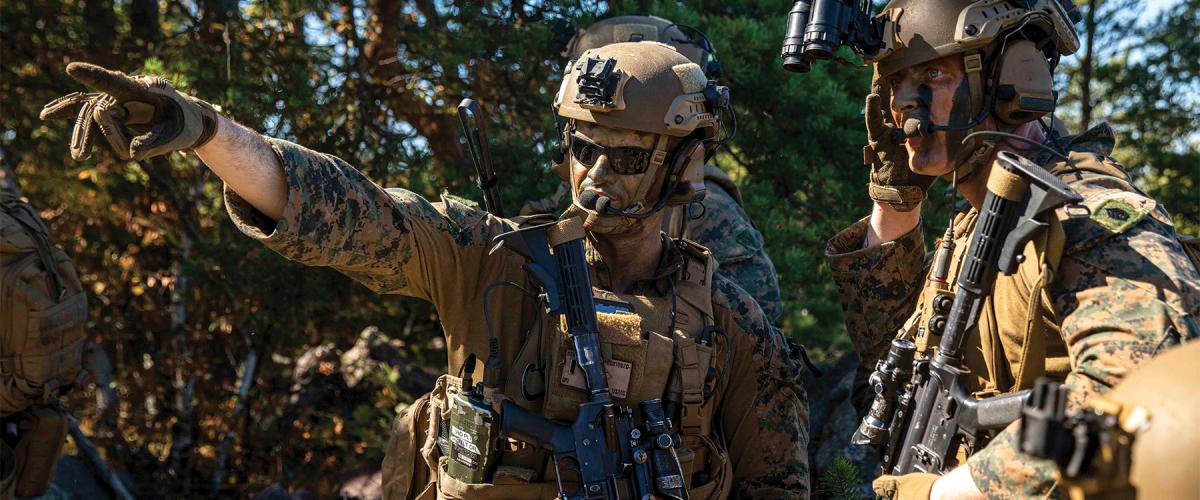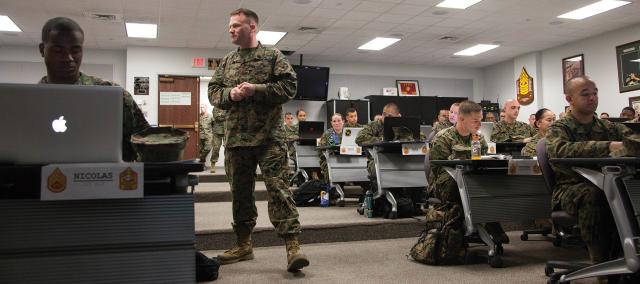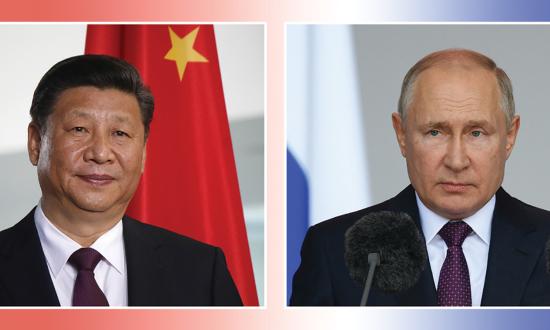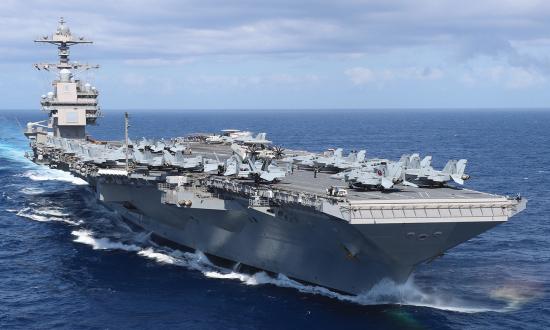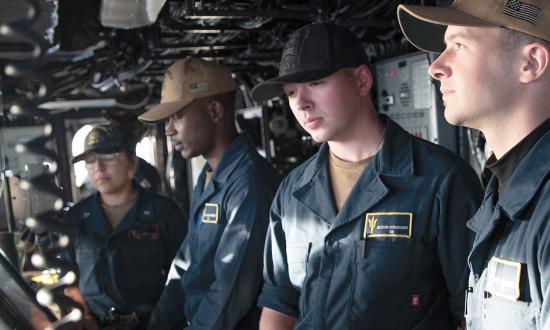In 2018, I attended a discussion led by Major General William Mullen, then commanding general at the Training and Education Command, outlining the officer professional military education (PME) continuum. His focus was on becoming an “eternal student,” someone who is intellectually curious and continually learning. He suggested Marines should be critical thinkers and that understanding basic doctrine can help when decision-making requires critical thinking.
The Marine Corps has many PME programs and follow-on schools for Marines as they ascend in rank. Unfortunately, the schools lack the in-depth study of war-fighting philosophy staff noncommissioned officers (SNCOs) need to sustain the warfighter mindset. Many SNCOs are not up to date on current events, technology, or near-peer threat capabilities. More important, they are not well-versed in Marine Corps doctrine.
As General Mullen noted, Marines are warfighters first, regardless of their military occupational specialty. The continual study of the art and science of war and the employment of Marine Corps doctrine is critical. While there are many publications with which all Marines need to be familiar, the foundational document is Marine Corps Doctrine Publication (MCDP) 1, Warfighting.1
Initiative
MCDP-1 notes, “All actions in war, regardless of the level, are based upon either taking initiative or reacting in response to the opponent. By taking initiative, we dictate the terms of the conflict and force the enemy to meet us on our terms.” Taking initiative requires one to take an action or seize an opportunity before others do. When applied in garrison, for example, it might be as simple as noticing the trash is overflowing in the office and taking it out before being told. Or if your unit is struggling in a certain area of training, it could be organizing a PME to increase proficiency before higher command requires it.
For a wartime example, assume commander’s intent is to deny the enemy freedom of movement within a specific area of operation. You might not know the enemy’s exact location, but you have done your map work and put yourself in the enemy’s shoes. You understand his weapon capabilities and the terrain. You have observed and oriented on the current situation. Based on all of this, you believe he is over on that hill. Time is critical at this point, because you want to avoid him massing his forces and getting his 82-mm mortars on your position, so you have to move now.
You make the decision with a certain level of uncertainty. You take initiative to attack and flank from the left, because that is where you believe the enemy is. Are you sure? No. However, gain outweighs risk; you have made a calculated decision. You have acted on commander’s intent and taken the hill. Critical thinking and good judgment helped lay the foundation for your decision.
Judgment
Often, Marines attempt to take initiative and wind up being told, “Good initiative, bad judgment.” After hearing this, a Marine might avoid taking the initiative in the future if the leader never explains that the judgment must come before the initiative. As leaders, SNCOs should never crush initiative, but instead teach their junior Marines how to operate with good judgment.
Reading and understanding doctrine is essential to that goal. It teaches Marines to take action without recklessness. It requires decisions to be backed by a calculated thought process. It develops Marines who understand risk versus gain and how to operate in chaotic environments.
Returning to the wartime example, if you took casualties during the raid and the commander said, “I guess the enemy was waiting for you. Good initiative, bad judgment, staff sergeant,” you would be justifiably angry. You did the work and took the initiative based on your best judgment. It is every Marine’s duty to take initiative as the situation demands.
MCDP-1 teaches that all actions in war are filled with friction, uncertainty, fluidity, disorder, complexity, violence, and danger. No matter the mission, a certain level of uncertainty will always exist. The way to thrive in an uncertain environment is to develop critical thinking skills that will enable you to determine whether an action’s risk outweighs the potential gains.
Again, understanding basic doctrine will help. Every situation has multiple possible solutions, and leaders must weigh the risk they will assume versus the gain they will receive before deciding which solution is appropriate and taking action. There always will be risks given available intelligence, but as long as you can align risk versus gain inside commander’s intent, then you have fostered decentralized decision-making. SNCOs’ job is to teach, train, and mentor junior Marines on what commander’s intent is, why it is important, and how to execute it through the continual study of the profession of arms.
Boldness
In an interview after the Iraq war, General James Mattis was asked how he made a specific decision in 30 seconds. He replied that it took him 30 years to make that decision.2 Be bold, not reckless. If you act in a way that is uncalculated, raw, and filled with emotion, that is not bold, it is reckless, and that is how Marines get killed. To be bold, you must calculate how best to accomplish the mission.
MCDP-1 says, “Boldness is the characteristic of unhesitatingly exploiting the natural uncertainty of war to pursue major results rather than marginal ones.” Boldness is based on strong situational awareness; weigh the situation before acting. It must be tempered with judgment lest it become recklessness. And it must be informed by an understanding of the problems that might arise during the mission—an understanding that comes from thinking creatively and critically long before you are staring the problem in the face. This brings us back to the eternal student and being intellectually curious. Knowledge is power. Knowledge of warfighting philosophy is greater power, and it is how General Mattis was able to make a crucial decision in 30 seconds.
Marine Corps doctrine is more than something to read. It is a philosophy that separates the Marine Corps from other branches of service. MCDP-1 states, “Every Marine has an individual responsibility to study the profession of arms. A leader without either interest in or knowledge of the history and theory of warfare, the intellectual content of the military profession, is a leader in appearance only. Self-directed study in the art and science of war is at least equal in importance to maintaining physical condition and should receive at least equal time.”
Studying doctrine in times of peace fosters thinking on how the Marine Corps can be prepared to fight in times of war. The enemy is always seeking ways to outgun, outthink, and outsmart us. It is our duty as SNCOs to train our Marines to think the same way and to stay one step ahead of our enemy. Keep your Marines in the warfighting mindset and give them opportunities to act within that mindset through challenges and exploiting gaps in training to drive and foster initiative, because that is what we all joined to do: fight and win wars.
1. Marine Corps Doctrinal Publication 1, Warfighting (Washington, DC: Headquarters U.S. Marine Corps, 20 June 1997).
2. Peter. Bergen, “Inside the Mind of ‘Mad Dog’ Mattis,” CNN, 7 December 2016.



